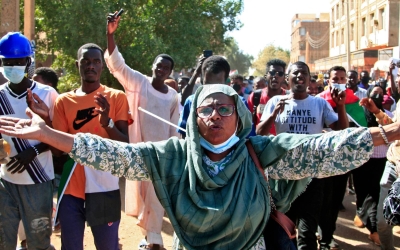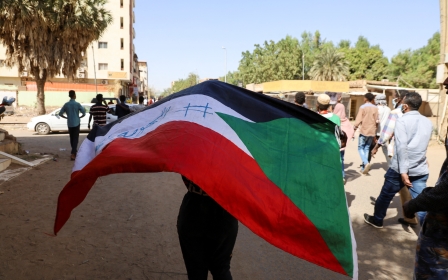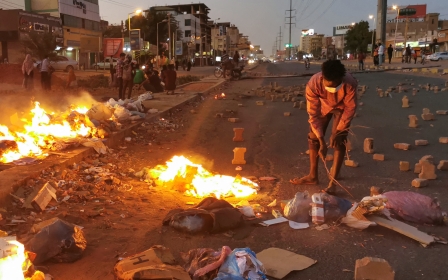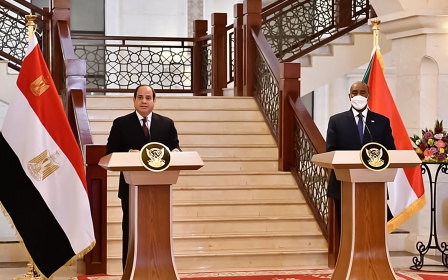Sudan: More than 100 detainees start hunger strike
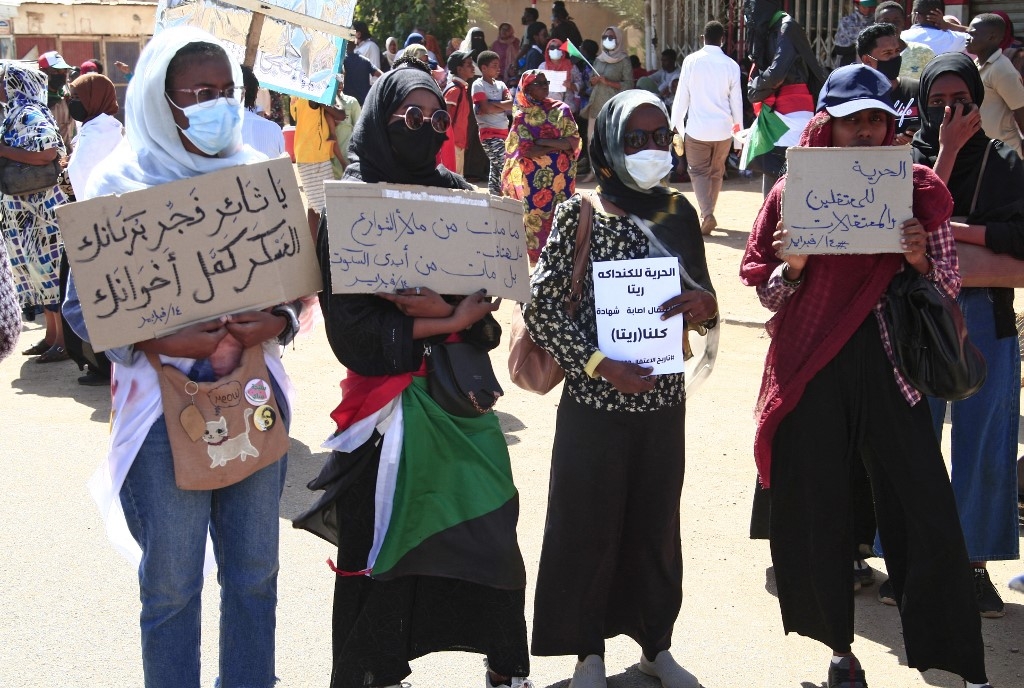
More than 100 Sudanese detainees, including two high-profile politicians, began a hunger strike on Tuesday, allied lawyers and doctors said.
The detainees are part of the protest movement against the 25 October army coup that ended a civilian-military power-sharing arrangement, which followed the overthrow of long-ruling autocrat President Omar al-Bashir in 2019.
The October coup prompted mass protests, during which at least 81 people have been killed, most recently this week, and more than 2,000 wounded, according to the Central Committee of Sudanese Doctors.
"More than 100 unlawful detainees in Soba prison entered today in an open hunger strike due to their unjustified and illegal detention," a Sudanese group called the Defence Committee for the Unlawfully Detained and Martyrs of Arbitrary Killings said in a Tuesday statement, according to Reuters.
The group said separately that one suspect in the killing of a police brigadier-general had been tortured while another was in solitary confinement. Reuters was trying to reach officials for comment on the allegation.
Civilian politicians Khaled Omar Youssef and Wagdi Saleh were taking part in the hunger strike, said Abdelqayom Awad, a member of Youssef's Sudanese Congress Party.
Youssef, a former minister of cabinet affairs, was arrested last week by plainclothes officers during a meeting of the Forces for Freedom and Change (FFC) bloc at the headquarters of the Sudanese Congress Party, senior member Mohamed Hassan Arabi said.
Saleh, a leading figure of the protest movement and an FFC spokesman, was also arrested last week, according to FFC leader Omar al-Degeir.
Saleh and Youssef were previously involved in a task force that seized property and fired bureaucrats linked to the regime of Bashir, Reuters reported. Both men were arrested immediately after the October coup, but were soon released.
Sovereign council
Along with former Sovereign Council member Mohamed al-Faki Suleiman, who was arrested on Sunday, the men face corruption charges apparently stemming from their work on the task force.
The Sovereign Council was a body of civilian politicians and military men set up after Bashir's overthrow to lead a transition to democracy.
It was dissolved after the October coup, setting back those plans. Military leaders say the coup was necessary due to political infighting and for the country's security, but they say they are still committed to elections in mid-2023.
Military leader General Abdel Fattah al-Burhan said in an interview on Saturday that he was not involved in the arrests of Youssef and Saleh - who were also detained temporarily in the coup, with Youssef claiming that he had been tortured - but that their work on the committee had diverged from its aims.
Sudan, which was already in the grip of a dire economic crisis before the coup, has seen vital foreign aid cut as part of the international community's condemnation of the takeover.
The Sudanese Professionals' Association, an umbrella group instrumental in organising the anti-Bashir protests and later the anti-coup rallies, has vowed that the demonstrations would not stop.
Middle East Eye delivers independent and unrivalled coverage and analysis of the Middle East, North Africa and beyond. To learn more about republishing this content and the associated fees, please fill out this form. More about MEE can be found here.


